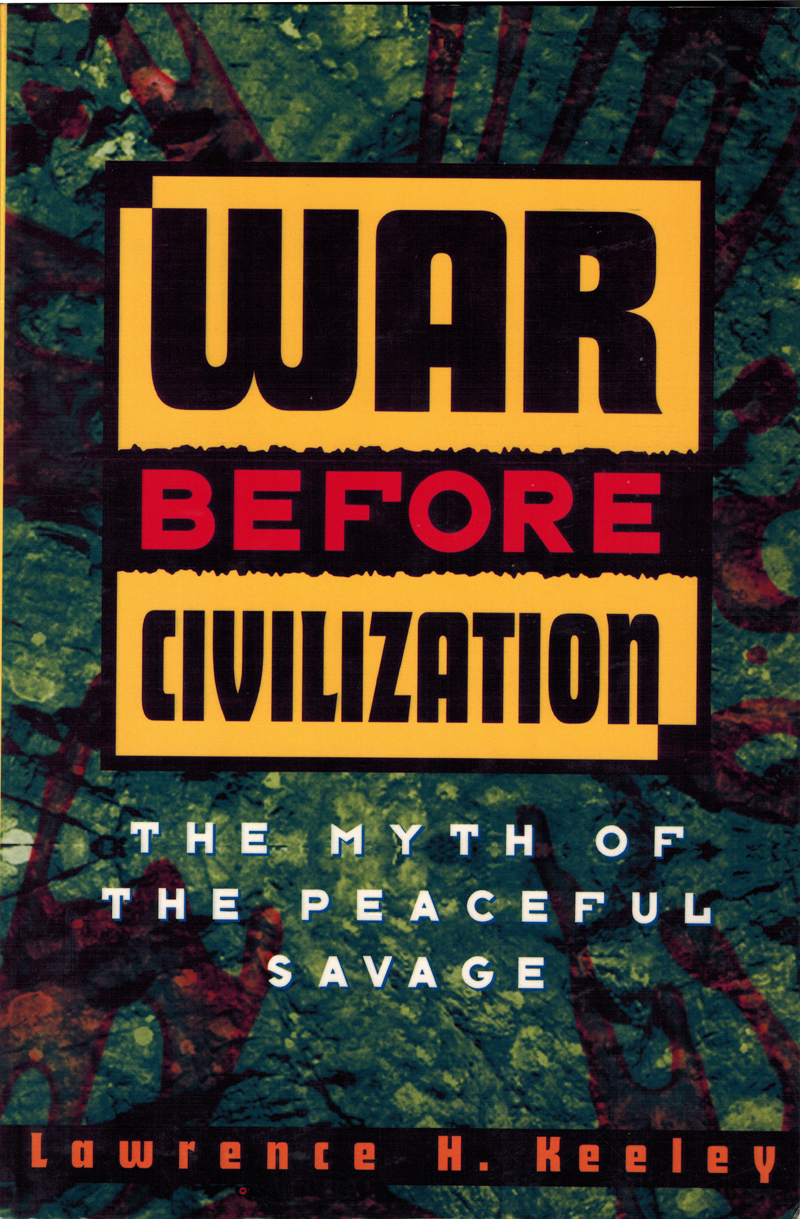
« Even today, most views concerning prehistoric (and tribal) war and peace reflect two ancient and enduring myths: progress and the golden age. The myth of progress depicts the original state of mankind as ignorant, miserable, brutal, and violent. Any artificial complexities introduced by human invention or helpful gods have only served to increase human bliss, comfort, and peace, lifting humans out of their ugly and hurtful state of nature. The contradictory myth avers that civilized humans have fallen from grace — from a simple and primeval happiness, a peaceful golden age. All the accretions of progress merely multiply violence and suffering; civilization is the sorry condition that our sinfulness, greed, and technological hubris have earned us. In the modern period, these ancient mythic themes were elaborated by Hobbes and Rousseau into enduring philosophical attitudes toward primitive and prehistoric peoples » (pp. 4–5).
« If war has always been horrible and seldom rare, what lessons, if any, can anthropology offer us in our pursuit of a more peaceful future? » (p. 180).
« First, we should consider trade as an especially productive source of violent conflicts and treat our closest trading partners with special care. [...] The attitude that “business is war,” often attributed to the Japanese, is exceptionally ignorant, encourages ruthlessness, and makes a habit of tickling the dragon’s tail by inciting and exacerbating trade grievances » (p. 180).
« Second, in our vain pursuit of military security, we should concentrate on economic and peaceful technological developments rather than strictly military techniques and weapons. [...] We have repeatedly observed in this study that military techniques and technology are heavily dependent on peaceful technology and social and economic organization. To feed the parasite at the expense of the host only weakens both » (p. 181).
« Third, we should strive to create the largest social, eonomic, and political units possible, ideally one encompassing the whole world, rather than allowing those we do have to fragment in mutually hostile ethnic or tribal enclaves. [...] As with imperialism, the mere maintenance of domestic peace cannot be an excuse for totalitarian tyranny, disastrous economic policies, or state imposition of cultural or religious uniformity, since many states of more equitable, prosperous, and tolerant character are just as internally peaceful » (p. 181).